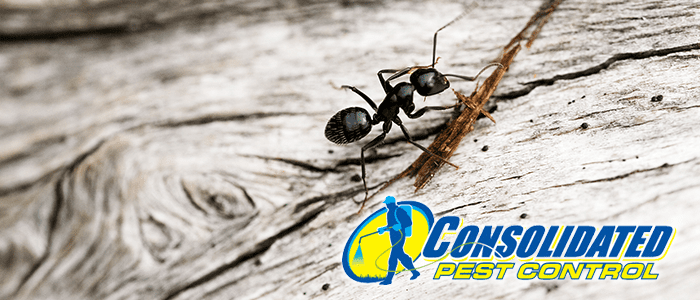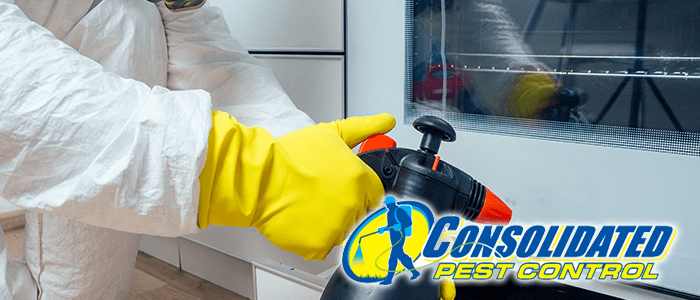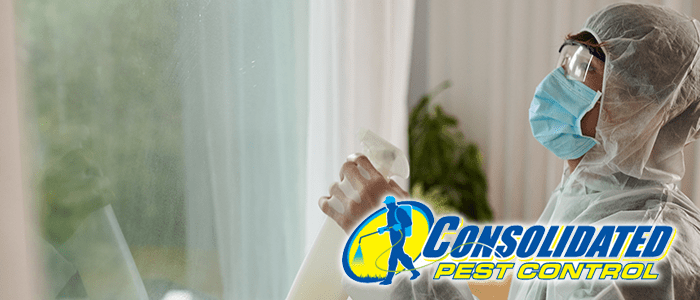
It’s a pretty common question. It seems like once a year, or so there will be a big news story about how creepy and scary spiders are – And while that may be true, many of these buzz-generating fluff pieces tend to go all-in on the dangers of various spiders, warning you of doom and disaster if you even look at one of them. How much truth is there to these stories – And if you’re a newcomer to the area or a lifelong Floridian, how scared should you be of Florida spiders?
There are two main types of venomous spiders capable of producing a significant bite in Florida: Widow spiders and recluse spiders.
Widow Spiders
Florida has four major species of widow spiders: Northern and Southern black widows, red widows, and brown widows. The two species of black widow spider are both shiny and black, with long, pointed legs and distinct red markings on their abdomen. The northern black widow tends to have streaks or spots in a line, while the southern black widow has a famously distinct red hourglass marking. Brown widows are very similar to black widows, but their abdomen and hourglass marking range from being dark brown to tawny orange. The red widow spider lacks an hourglass but has a bright red body, black abdomen, and orange to red spots on its backside.
Widow spiders build complex, three-dimensional webs in dark, out-of-the-way places. They famously seem to enjoy out-of-service toilets! Because their webs are large and complex, you could disturb them accidentally in a garage, attic, or basement. These spiders tend to flee from trouble unless protecting eggs or pressed against the skin. In case one has crawled into your gloves, shake them out before putting them on. Bites cause a systemic reaction, with muscle pains setting in throughout the whole body within 15 minutes. Symptoms can last days, but they are very rarely fatal.
Recluse Spiders
These spiders are pretty famous for their purported ability to cause destructive skin conditions with their bites – But how bad are they, really? There are three species of recluse spiders in isolated areas in Florida, but none of them are native. These are the brown recluse, Mediterranean recluse, and Chilean recluse. None of these spiders are aggressive, and they tend to be remarkably shy and quick to flee, preferring to build their chaotic webs in out-of-the-way closets or junk piles.
Unlike many web-spinning spiders, these creatures leave their webs to hunt at night, returning for shelter. Though they aren’t aggressive, this hunting behavior can create situations where they bite. Situations such as pressing spiders between a blanket or article of clothing and human skin will trigger a bite response.
Recluse spiders can be identified by their broad leg spans that bend forward almost like a crab, as well as dark violin-shaped marks on their back. While the first two varieties only very rarely create serious reactions with their bites, the Chilean recluse is both the largest and most dangerous recluse spider found in Florida.
Severe bites from the Chilean recluse can cause the skin to rot, as well as do the same damage to the internal organs. This is because of a chemical called Sphingomyelinase D present in their venom. For this reason, while you’ll usually be okay, you should always report a recluse bite to medical professionals as soon as possible in case there’s an allergic reaction.
In Conclusion
While Florida’s venomous spiders are capable of giving you some painful bites, they won’t go out of their way to do so, and if you do get bitten, you will probably be okay. That said, always report a widow spider or recluse spider bite to your doctor. The possibility of death is there, and you’ll want to make sure that you’re not going to be taken out by a spider bite.
Wear gloves when working in places with spider webs, and call a professional if you notice these spiders setting up shop in your home. Even if the risk of death or severe injury is low, it isn’t zero – You’re better off safe than sorry!








